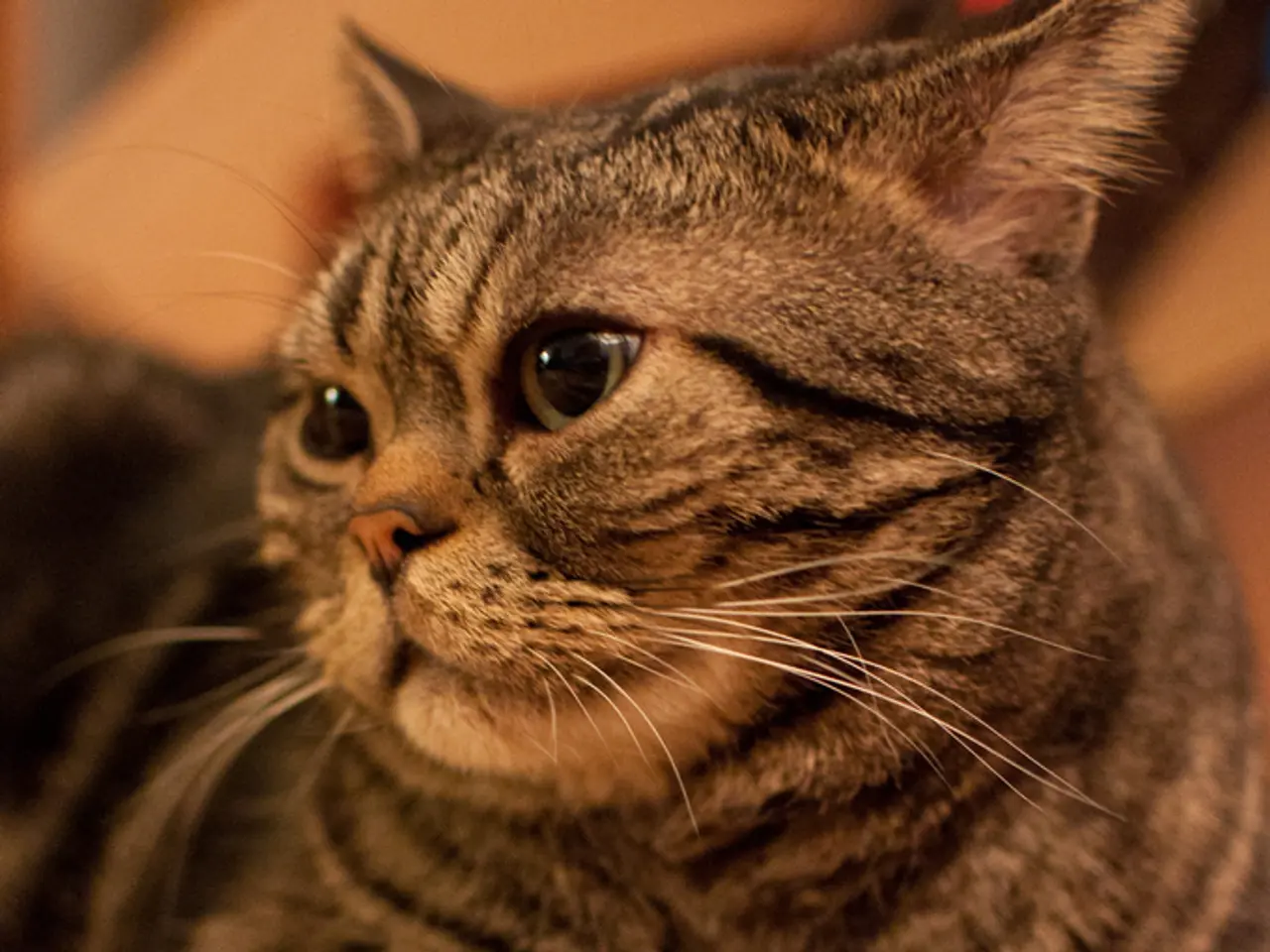Proposal called for by Commission on shielding workers from potential dangers linked to ionizing radiation exposure.
News Article: Microchipping Cats for Identification and Reuniting Families
On World Cat Day, August 2nd, the Meiningen Animal Protection Association is hosting a benefit chipping action at the Rohrer Berg Animal Shelter from 10 am to 12 pm. This event aims to promote microchipping for cats, a simple and beneficial practice that provides permanent identification and increases the chances of reuniting lost cats with their owners.
Microchipping is a quick, animal-friendly, and preferred method for identifying pets. The small device, about the size of a grain of rice, is implanted under the cat's skin and stores a unique ID number linked to the owner’s contact information in a registry. Unlike collars or tags that can fall off or be lost, microchips are permanent and tamper-proof.
In protection areas of the district's cat protection regulation, it is mandatory for all outdoor cats to be chipped, along with neutering. However, for indoor cats, microchipping works like an ID card or a business card, providing peace of mind for worried cat owners and assisting animal shelters in identifying lost cats.
Uncertainty about the fate of a lost pet is unbearable for owners. Microchips help animal shelters and veterinarians identify lost cats quickly, even if collars are missing, facilitating faster returns and reducing shelter stays or euthanasia risks. Studies show that microchipped cats have a significantly higher return rate compared to cats without microchips. In some studies, up to 40% of microchipped cats were returned to their owners, compared to about 20% for cats without microchips, improving recovery rates dramatically.
Microchips also serve as legal proof of ownership and enable better care by revealing important medical information if needed. Registration in the free animal registers Tasso and Findefix is necessary for identifying lost cats.
At the event, a veterinarian from the contract veterinary practice in Obermaßfeld and the Animal Protection Association will be present to answer questions about the cat protection regulation or the association's tasks and concerns. Cat owners should bring their cat's vaccination record for the chip number to be recorded in it.
Transponders for the chipping procedure may be limited, so cat owners are encouraged to take advantage of this opportunity to have their pets chipped. A small fee will be charged to cover costs and support the animal shelter's operation. This event aligns with efforts to improve cat welfare globally by encouraging responsible pet ownership and reducing the number of unclaimed or lost cats in shelters.
In sum, microchipping is a simple, low-risk procedure that provides permanent identification, raises the chances of reuniting cats with families, supports animal shelter operations, and enhances overall cat safety. It's a message particularly relevant to awareness campaigns such as World Cat Day.
- Science can aid in improving cat health-and-wellness through microchipping, a practice that ensures permanent identification and increases the chances of reuniting lost cats with their owners, while also supporting animal shelters' operations.
- Microchipping, a proven measure in pet identification, not only offers peace of mind for cat owners but also contributes to the field of health-and-wellness by aiding in quicker identification of lost cats and reducing euthanasia risks, aligning with efforts to improve cat welfare globally.




